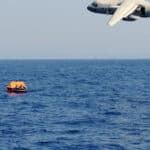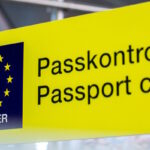Before suggesting how to orient the financial commitments of the Italian Defense projected at 2% of GDP, I believe it is essential to expose what are the threats challenging Italy.
What's threatening Italy
Some peculiarities of the Ukrainian crisis and the Italian geo-strategic framework are subordinate to the relationship dynamics between the major powers with world interests, which continue to contribute to crisis causes. It is clear that, if the Russian-Ukrainian conflict is to be counted among the symmetrical high-intensity conflicts, at the same time a "cold war" scenario is taking place between the Atlantic Alliance's members and the Russian Federation. In fact, the globalization of relations - enhanced by technology - is a significant accelerating factor in the evolution of instability, extending the concept of crisis area, incorporating new dimensions such as cyber, media and social environment.
Aggressive and unscrupulous powers such as Turkey and Russia (but also France with its overseas ambitions) are running around in the Mediterranean because of our military and diplomatic absence, undermining the commercial development of the Italian people. The acquisition of energy resources and their distribution through strategic lines of communication significantly affect vital interests of Italy, an energy-intensive state par excellence. It is, therefore, easy to understand how to ensure an adequate level of energy security is a critical element that requires the diversification of supply sources, the protection of sea lines (80% of raw materials arrive by sea), of strategic critical infrastructure and the development of high energy efficiency technologies.
States unable to guarantee their own internal stability generate illegal migratory flows that have a negative impact on stability and security of the nations of transit and final destination - such as Italy - also due to the close connections with illegal trafficking, terrorist activities and smuggling of drugs and weapons.
In addition, the proliferation of non-state actors with strong ethnic roots (in Libya, Algeria, the Balkans, but also in Corsica and Spain) and private military companies (contractors of various nationalities, the Russian "Wagner" and "Slavonic Corps" operating in Africa and the Middle East, Tunisian ex-foreign fighters in Libya), both of which have little inclination to be subject to local government authority, mark the areas near Italy with ongoing crises, undermining the hoped-for stabilization process.
Huge-potential multinational groups affect the world's financial markets in a speculative way, to the point of altering the economy of states, generating disorder and chaos (in 1992 the Italian lira was heavily devalued due to financial speculation by billionaire George Soros through his Quantum Fund).
The cyber environment is a vulnerability factor if not adequately protected: ideologized terrorist entities, transnational organized crime, and state actors exploit the negative cyber potential and pose a threat to be countered with military cyber operations.
The proliferation of explosive devices, easy to access and low cost, is a constant threat in the hands of subversive groups, totalitarian states or mythomaniacs.
Strategic military guidelines
That said, strategic-military guidelines must guide military spending. I believe it is a conditio sine qua non to emphasize the prominent role of the Mediterranean in the nation's economy, prosperity and security. The main hotbeds of crisis are, de facto, concentrated along the so-called arc of instability, from West Africa to the countries of Central Asia.
It is therefore necessary to propose and support the definition of a national clear autonomous maritime strategy, included in NATO and in the EU, with a specific focus not only on the countries producing energy materials, but also on countries of origin and transit of illegal migratory flows, precisely because of the close connections that exist with illegal trafficking and the related social and humanitarian impact.
It is necessary to demand from the allies a greater exchange of intelligence on some key points, the implementation of programs of capacitive reconstruction of the various states of the Mediterranean south bank, adapting the offers to each country's peculiarities, also - when necessary - with Italian-led stabilization and reconstruction missions.
Italy must promote a broad political-strategic proposal within the EU, harmonizing with NATO cooperation programs, pursuing the realization of an effective EU foreign and defense policy, searching for a structured connection between internal and foreign policy, between military and civilian components. Italy should be the promoter of a concrete synergy between NATO and the EU through mutual reinforcement, i.e. the development of shared war capabilities, common to both organizations, which can be drawn on in full respect of their mutual decision-making autonomy. Italy should position itself as a reliable and decisive partner in Europe, transforming the French-German axis into a strategic equilateral triangle between Rome, Paris and Berlin, highlighting Italy's maritime nature.
Italy as regional power
The migratory problem is the tip of the iceberg of an unprecedented instability afflicting much of Africa and the Middle East. The response to all this must be sought through an appropriate combination of five necessarily interconnected aspects:
- Border security
- Maritime security
- Protection of national interests
- Deterrence and contrast of international unlawful acts
- Fighting terrorism and piracy.
In the Mediterranean we must aim to achieve regional power hegemony through the fight against the trafficking of weapons of mass destruction, the trafficking of human beings (also by preventing NGO ships from acting as pull factors), drug trafficking, deliberate pollution, the threat to the integrity of submarine cables and pipelines, the illegal exploitation of marine resources including fishing; but also through the support to our fishermen in their legitimate activity in international waters. Italy must ensure preventive measures to protect national shipping and port areas from intentional unlawful actions. Italy must push the UN to manage the humanitarian emergency by adopting policies for refugee screening and granting political asylum, through the establishment in Africa of assistance camps for migrants/refugees with a legal basis and security framework.
Ultimately, in light of the conflicts in Libya, Syria and Ukraine, Italian society must finally be convinced of the need to have a competent and credible military component capable of carrying out appropriate deterrence and, when necessary, significant and prolonged tasks not only in high-intensity asymmetrical confrontations, but also in new symmetrical scenarios between States.
Senior Fellow of the Centro Studi Machiavelli. Admiral of division (res.), former commander of destroyers and frigates, he has held important diplomatic, financial, technical and strategic assignments for the Defence and Navy Chiefs of Staff, both at home and abroad, at sea and on land, pursuing the application of capabilities aimed at making the Italian defence and security policy effective.









Scrivi un commento